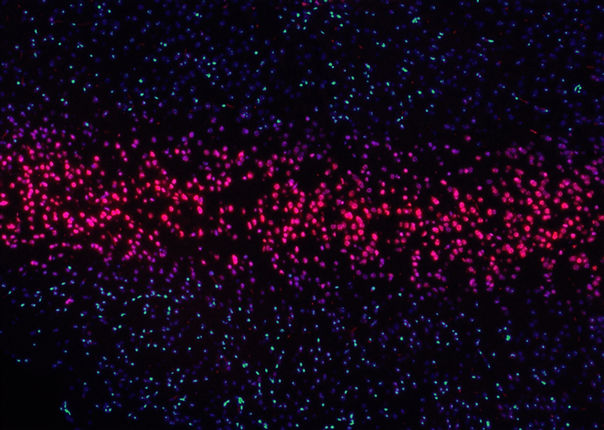
This is not an official NIH site and does not represent NIH or US government views.
For official views, visit the NIH NIEHS website.

Research & Ideas
The overarching goal of the lab is to elucidate the cellular and molecular mechanisms that control placental development in homeostasis and disease.

WHO WE ARE
We are a cell biology lab interested in autophagy, intracellular trafficking, and secretion in the placenta. Currently, our research plan focuses on generating a comprehensive understanding of placental-specific autophagy processes and the connection with the secretory pathway during development, function, and parturition. As a maternal-fetal interphase organ, the placenta offers a unique system of study to address fundamental basic biology questions that are hard to address using other models.
OUR MOTIVATION
When the placenta does not work properly, both mother and fetus display a variety of complex systemic disorders. An example is preeclampsia, where affected pregnant women develop hypertension and proteinuria along with systemic endothelial dysfunction during the second half of pregnancy and sometimes beyond delivery. Additionally, preeclampsia is sometimes associated with fetal growth restriction and stillbirth, conditions that critically impact the proper intra-uterine fetal development and have long-term adverse consequences later in the life of the child. The mechanisms that contribute to cardiovascular and renal disease following preeclampsia, unfortunately, are unclear. Therefore, the mission of the lab and our commitment to society is to understand such systemic pathologies, generate tools of diagnosis and treatment, and become a hub for collaborations with researchers from all disciplines within the interface of placental development and feto-maternal physiology so we all together advance the field with our research.
We are committed to helping explain the impact of certain environmental exposures of an individual over their lifetime and how they relate to health, starting from the role of the placenta on controlling the baby's exposome. Additionally, our group believes in a collaborative workforce as the only way to innovate and create new and better solutions to the unsolved problems we face every day. For that, translation, outreach, and communication of our science are essential to engage and give back to the community.
WHAT WE DO
Our specific projects focus on the mechanisms that: 1) control and drive autophagy-specific placental cell functions, 2) specify the origin and cargo-loading of placental extracellular vesicles (EVs), and 3) regulate the secretion of hormones during placental development and pregnancy. We are also exploring chronic disease conditions like obesity and interventions such as exercise to interrogate environmental stressors during pregnancy. We use a combination of cell biology tools such as 1-2-3-4D culture of primary placental trophoblasts and cell lines, multiple CRISPR and lentiviral technologies to screen and control the expression of genes in these cells, mouse models, and advanced biochemistry and microscopy techniques.
